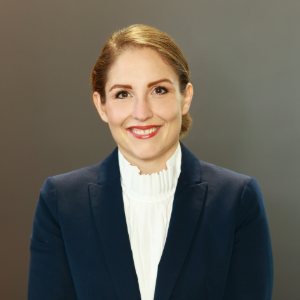Connecticut law authorizes local Zoning Boards of Appeals (ZBAs) to grant variances to zoning laws in limited circumstances. Variances are reserved for applicants who demonstrate an “exceptional difficulty or unusual hardship” complying with the applicable zoning regulations or, in some cases, reducing an existing legal non-conformity. However, the terms “exceptional difficulty or unusual hardship” are not defined in Connecticut statutes, which has left it up to the courts to interpret what constitutes a hardship worthy of a variance. Over time, the courts have narrowly construed the definition, making it difficult to prove that a legal hardship exists. For example, financial hardship is not considered a legal hardship for zoning purposes.
Homeowners across the state seek variances to modify their homes for various reasons. However, the current law is overly restrictive and does not align with the expectations of today’s Connecticut residents. As a result, ZBAs often make decisions based on factors other than the law. For example, if a family wants to expand its house on a small lot to accommodate a growing family, a disabled individual, or an elderly parent, they need a variance. The same holds for making it FEMA compliant. It is unlikely that those circumstances qualify as legal hardships as defined by the courts. Accordingly, ZBAs frequently look beyond the law and weigh other factors related to a proposed change, such as whether it is reasonable, whether the renovation would be consistent with other homes in the area, and whether neighbors object to it. In situations like these, it can help to hire a lawyer to guide you through the process.
Proposed Amendments to the Law
The lack of a functional definition of “exceptional difficulty or unusual hardship” creates inconsistencies in how variances are granted in Connecticut. As a former officer of the Planning and Zoning Section of the Connecticut Bar Association (CBA), I, along with several members of our section, have spent years working to propose amendments to the law at the state level to “fix” or minimize inconsistent and often inequitable decisions that can have a lasting impact on homeowners, their families, and their neighborhoods.
Unfortunately, we’ve experienced pushback from practitioners, many of whom are members of the CBA Planning & Zoning Section and other stakeholders. This opposition has hindered the proposed legislation.
The rationale behind this new proposal is that needs vary by community. In Westport, for instance, nonconforming properties near the Long Island Sound need to be brought into ADA or FEMA compliance while also conforming with the local regulations. The issues in small beach communities differ from those inland areas with lakes and farmland or big cities. This new proposal will provide local commissions with the ability to implement zoning schemes that determine when their zoning regulations should be varied.
A Flexible Path Forward
I believe that some of the objections are related to concerns about the legislature in Hartford dictating to local municipalities when their zoning regulations should be varied. To address that, I propose a modified approach: have the CBA Planning & Zoning Section develop a model zoning regulation that defines “exceptional difficulty or unusual hardship” so each municipality has the flexibility to 1) adopt the model regulation as is, 2) modify and then adopt the model regulation for their community, or 3) reject the model and continue with the narrow definition used by the courts. We believe a local planning and zoning commission can and should determine when the ZBA is authorized to grant a variance to its zoning regulations by exercising its legislative powers and defining “exceptional difficulty or unusual hardship.” For those municipalities willing to adopt a definition, the court’s narrow definition of hardship would be moot.
I have shared this approach with many Planning & Zoning Section members, some of whom were concerned that this proposal could result in hundreds of different regulations, which would be burdensome for the courts to interpret in the event of an appeal. I disagree with that answer, as the courts already interpret unique municipal regulations at the heart of an appeal in several circumstances, including when seeking special permits, special exceptions, and nonconforming-use decisions by planning and zoning commissions. In those cases, the courts interpret the applicable regulations from the subject municipality and render a decision by applying that specific regulation to the facts of the case and the law. My proposal would not require anything more than what is already being asked of the courts in any other zoning appeal, hence it shouldn’t be an obstacle to fixing a problem that a majority of the Connecticut Land Use Bar acknowledges is worth fixing.
It’s time to lobby municipalities to remove the ambiguity of “exceptional difficulty and unusual hardship” to better meet the needs of communities throughout Connecticut.
Eric D. Bernheim, managing partner at FLB Law in Westport, Conn., represents tenants, developers, municipalities and lenders in transactions of all kinds, including leases, acquisitions, dispositions, and financing, in addition to handling zoning and land use matters. Contact Eric at bernheim@flb.law or 203.635.2200. For more information about FLB Law, click here.


























